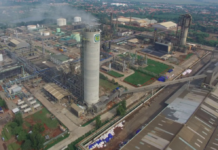The Cyber Security Agency of Singapore (CSA) is establishing separate cooperative efforts with Microsoft and Google on national cyber defence and cybersecurity.
This was announced by Heng Swee Keat, Deputy Prime Minister and Coordinating Minister for Economic Policies, at the opening ceremony of the Singapore International Cyber Week on Oct. 17.
In this light, CSA signed memoranda of understanding with the two companies. These agreements will, among other things, facilitate cyber threat intelligence sharing, joint operations to combat cybercrime and malicious cyber activity, exchanges on emerging and critical technologies, such as artificial intelligence, as well as capacity building efforts.
CSA recognises that in cyberspace, multi-stakeholder cooperation is key. States and industry players share a collective responsibility to build a stable and secure cyberspace.
Thus, these partnerships further Singapore’s commitment to continue working closely with key industry players in the digital domain to build a safer cyberspace for all.
“Cyber defence is a team effort. Big Tech plays a key role in shaping our digital terrain and are therefore important partners in cyber defence and cybersecurity,” said David Koh, chief executive of CSA.
“We look forward to working closely with Microsoft and Google to advance our shared mission of building a safer cyberspace for all users,” said Koh.
Lee Hui Li, managing director of Microsoft in Singapore, said that the increasingly complex cybersecurity landscape presents an opportunity to deepen their multi-year ecosystem partnership with stakeholders like the CSA.
Lee said such international collaborations will enhance our customers’ trust in the digital domain as they leverage collective capabilities and innovate with AI to combat emerging cyber threats.
Michaela Browning, Google VP on government affairs and public policy in Asia-Pacific, said that AI has long had a tremendous impact for good on the security ecosystem, and leveraging advances in AI will be important for global security and stability going forward.
“Generative AI will present novel security risks, including misinformation and cyber threats, but will also become the foundation for a new generation of cyber defenses through advanced security operations and front-line intelligence, if we are bold and responsible with its development and regulation,” said Browning.
















